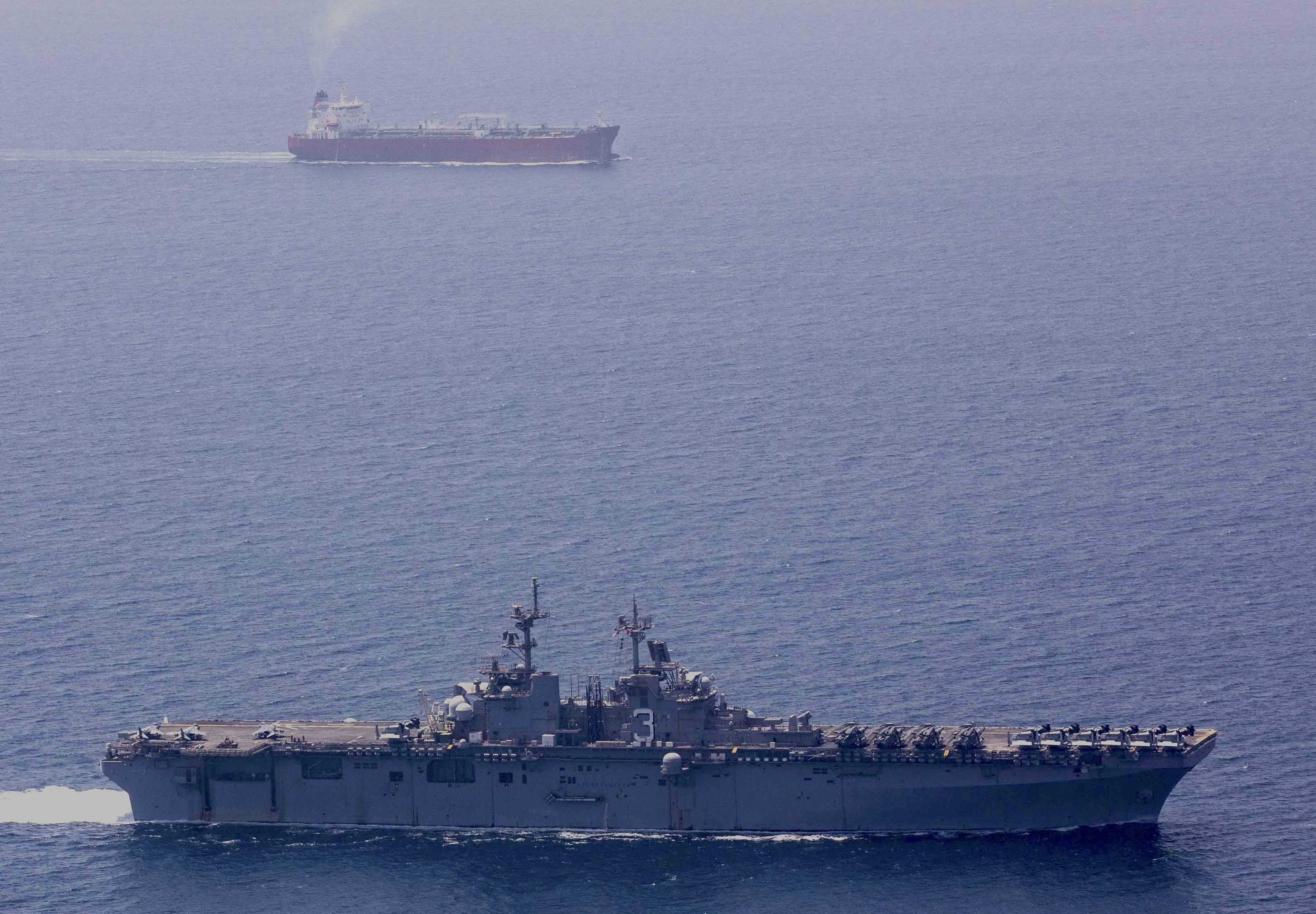
THE PENTAGON – American forces are willing to provide allies with intelligence on potential maritime threats in the Middle East, but countries will need to bring their own escorts, defense officials told USNI News on Wednesday.
Operation Sentinel is the emerging U.S. Central Command plan to keep merchant traffic in the Middle East moving and safe amidst the ongoing disputes between Washington and Europe and Iran, Secretary of Defense Mark Esper told reporters on Wednesday.
“The key issues are two-fold: one is maintaining freedom of navigation in the Strait [of Hormuz], the Persian Gulf and the Gulf of Oman. The second is deterring provocative action from Iran,” he said Wednesday morning after being sworn in as SECDEF on Tuesday evening.
CENTCOM is working through a planning process with unspecified partners and allies to outline a construct for Operation Sentinel – not to be confused with the ongoing NATO mission in Afghanistan, Operation Freedom’s Sentinel – by the end of the month.
While plans are still being developed, the idea that CENTCOM will collect and distribute information related to the Middle East threat picture from the Bab el-Mandeb entrance into the Gulf of Aden, through the Arabian Sea, up into the Gulf of Oman and through the Strait of Hormuz into the Persian Gulf.
While the U.S. will share the information with members of the group, American Navy ships will not be escorting international maritime shipping, two defense officials told USNI News on Wednesday.
“Most countries who transit the strait have an interest in this and should want to provide forces to ensure navigation of the strait, freedom of the seas and deter provocative behavior. It’s all complementary, it all works,” Esper said.
“The Brits are trying to escort their ships. We’re escorting our ships to the degree that the risk demands it. I assume that other countries will escort their ships.”

Last week, the Iranian Revolutionary Guard Corps Navy seized two U.K.-flagged tankers in the vicinity of the Strait of Hormuz, and IRGCN forces are still holding the ships. Earlier this month, U.K. officials had seized an Iranian tanker near Gibraltar.
On Monday, U.K. foreign secretary Jeremy Hunt said London would be joining a separate European maritime security group to secure ships from Iranian harassment, according to a report in Jane’s.
The move to not joint the U.S. is a reflection of U.K. and Europe not wanting to be associated with the White House’s ongoing “maximum pressure” campaign of economic sanctions on Tehran and an expression of the ongoing commitment to the Iran nuclear deal the U.S. left, the Jane’s report concluded. The U.K. is preparing to send a warship to the region to join a Royal Navy frigate already in theater.
When asked about London’s decision, Esper said all groups would likely be working together.
“Whether we do that as one big group or as sub-groups, as long as it complements one another – clearly there will be coordination between us all – CENTCOM will be the coordinating authority,” he said.
In terms of U.S. presence in the region, Esper said forces in the Middle East would maintain a presence around potential danger areas but stopped short of saying it would escort all American ships to prevent their seizure by the IRGCN.
“We would want to make sure we have the capacity to make sure that doesn’t happen. And in some cases that may be strictly an overhead capability. It may mean that there is a U.S. naval warship within proximity to deter that,” Esper said.
“I don’t necessarily mean that every U.S.-flagged ship going through the strait has a destroyer right behind it.”
The last time U.S. vessels were escorted by warships was for a few days following the 2015 seizure of the Marshall Island-flagged ship M/V Maersk Tigris.
A collection of U.S. warships escorted American merchant traffic in and out of the Persian Gulf for a few days before the IRGC released Maersk Tigris.





